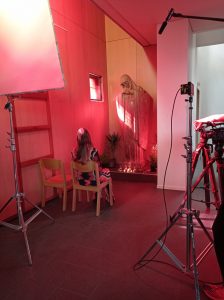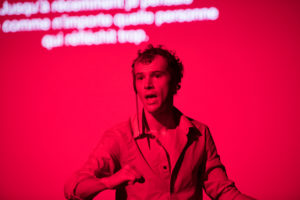“I film to look at how I see and record to listen to how I hear,” writes Mélissa Gagné over email, whose first full-length album under the alias Cecilia has just been released by way of Halcyon Veil. Described by the label as “a lucid-dream immersion into a state of deep, personal interiority,” the album is composed of desolate and fragmented elements of synthesiser, guitar and percussion, alongside polyglot vocalisations derived from original poems and movie samples.
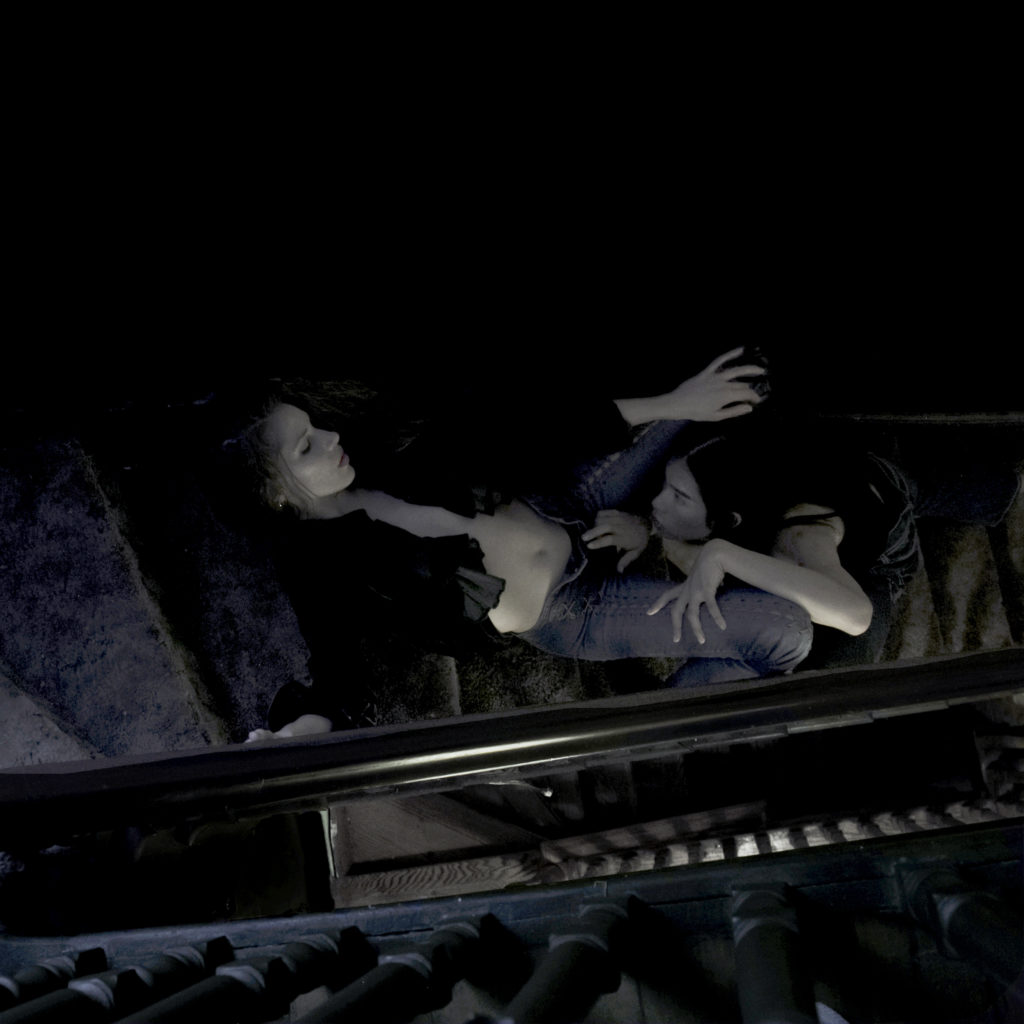
Entitled Adoration, the album follows last year’s visual EP Charity Whore, released on Yves Tumor’s Grooming label, and moves away from Naples-based multidisciplinary artist’s previous work under the moniker Babi Audi, which included Club Dead LTD on Hoss Records, the self-released Mommy Dust, and the visual concept mix 6 Page Letter via DIS magazine. Alongside Cecilia, it also features additional contributions from Gagné’s friend Jasmine Pisapia, and writing taken posthumously from the work of poet, activist and sex worker Grisélidis Réal.
Video appears to play an important part in much of Gagné’s work, including her music – albeit her practice also spans installation, performance and theatre. “The imagery seems to function like hallucinatory impressions of the soundscape,” she explains. “I believe they have their own independent existence, they are simply haunting each other for a moment.” Gagné asserts, however, that music came first. Growing up in the rural southeast of Quebec, she taught herself to play guitar from the age of nine and loved to sing. “I was fascinated by the reverberation proprieties of certain spaces and also very attentive to the elocution of words.”
Cecilia is set to perform at Amsterdam’s Progress Bar club night on May 26, in a lineup that includes Elysia Crampton, Why Be and Dasychira. Ahead of her performance, and after admittedly inhaling a lot of smoke machine vapour the previous night on stage with Rabit — who’ll also be performing on the night — the artist shared her thoughts on her different alter egos, working across sound and video and her latest release. Read the interview below and listen to Cecilia’s mix for AQNB, Adieu Misère, which features music by the likes of Olivier Messiaen, Oxhy, Ghédalia Tazartès, Diable Noir, Diamanda Galás and Cecilia herself.
**How would you describe the personalities of Babi Audi and Cecilia?
Mélissa Gagné: I would say Babi Audi is an arrogant adolescent. She is fraudulent, flirtatious and temperamental. She succumbs to her materialistic tendencies: steals, lies, loves trash and gossip. Cecilia thinks she is a saint, wants to lick the world’s wounds. She believes she deserves a Nobel Prize for feeling other people’s pain so much. Patient and slow, she can disappear into airplane mode and be silent for years. She contemplates and surrenders. She could have been the perfect mystic. She wonders how to channel her anachronic sense of the absolute.
**How do sound and video relate to one another in your work?
MG: They relate in the sense that they emerge from a common intention of seeing and listening more closely, carefully; to sharpen my acuity through aesthetic impulses. I take a lot of pleasure in the act of filming, as I do in the act of recording. In a way, I film to look at how I see and record to listen to how I hear. I am interested in observing and maybe questioning the subjective connotations revealed in the process. Usually, the thought process behind the audiovisual assemblage is not a rational but an intuitive one. That said, in the future I want to create film pieces with a more assumed cinematic approach and developed narrative.
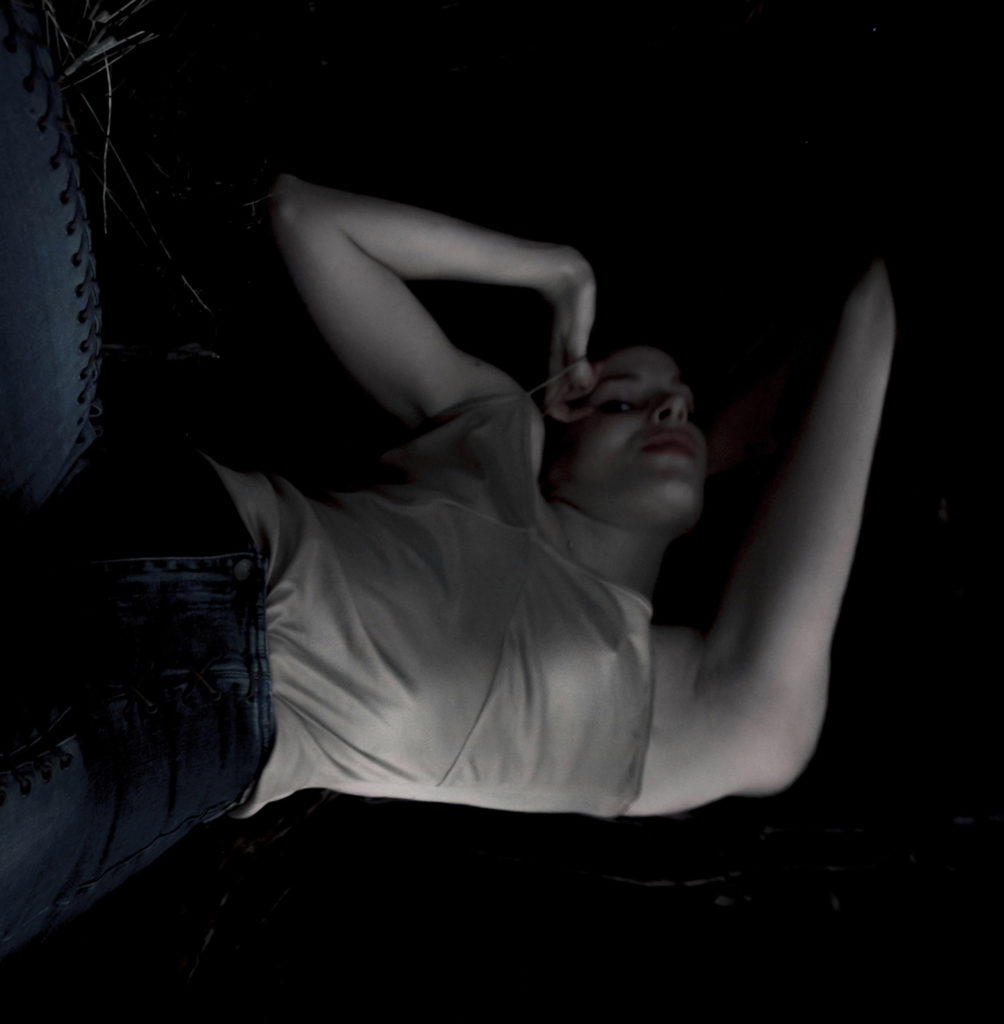
**Are you drawn primarily to certain forms, mediums or disciplines over others?
MG: I think sound and music always came first for me and seem to always come back to the centre. As a child, I loved to sing. I was also obsessed with piano, which I did not have access to. I grew up in quite an isolated and precarious environment, which now appears to me as anachronic if I talk with people my age. I started to teach myself guitar around the age of nine. A cheap electric guitar had entered the household through my older sister, who was dating a cute metal boy. I quickly learned all the Metallica and Slayer tabs that were hanging around, focusing on the plaintive solos, indulging in picking prowesses. Soon after that I started to compose songs and sing my poems over them. I was also singing in my village choir; funeral liturgies were my favorite – bucolic lyrics trying to seize death with elemental analogies, in praise of nature and life cycles, dramatically performed in very strong incense. An austere and dusty biblical show, but I think that the ceremonial and ritualistic qualities of these mass performances stuck with me. For me, composing and preparing live performances involves poetic and theatrical writing. Music can be at the core, but is crossed and pollinated by these other forms. But, yeah, music/sound is without doubt the form that affects me the most, and for that reason I am compelled to practice. Sound has this unique physicality that allows you to literally touch people. You can gently or harshly bathe them, in lavender or cold acid. It has this direct and efficient potential.
**Who or what are your main musical influences?
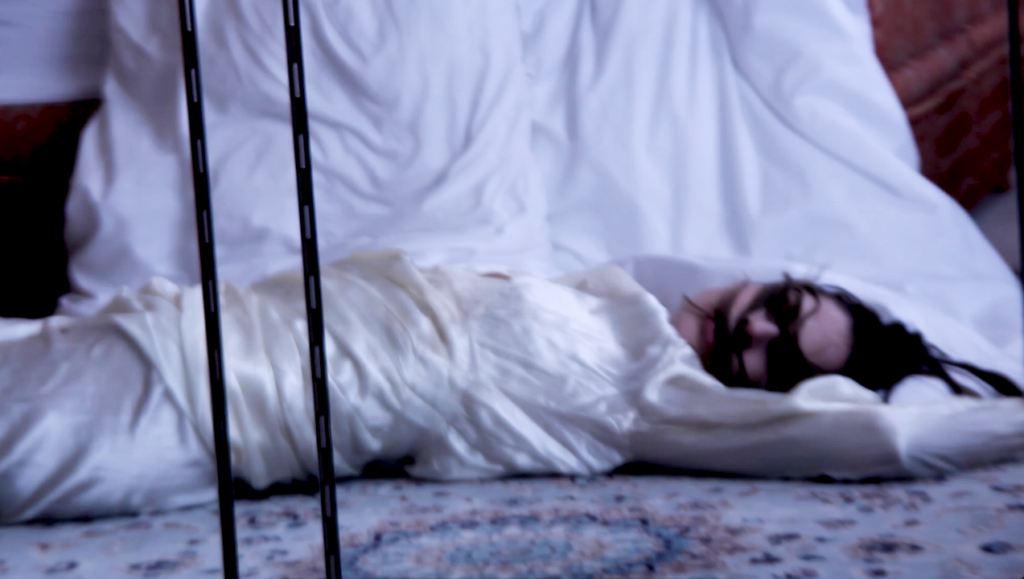
MG: I feel reticent to drop names. Who knows what really influenced me? I cannot say if the music I listened to or loved has necessarily influenced me. Portishead, Brigitte Fontaine, Ghédalia Tazartès and Burial have, without doubt, been inspirations in my early adult life. But I often think that other kinds of auditory experiences had a greater impression on me, feeding the compositional gesture at an unconscious level, shaping certain aesthetic patterns I recognize in my choices. I think that I have been significantly ‘influenced’ by repetitive episodes of ‘paranoiac hearing,’ sonic hallucinations I had through my childhood: every noise and sound around me would suddenly be charged with heavy emotional weight – a threatening strangeness, as if there was a dramatic and malicious conversation between inanimate objects made accessible for me to listen. I was trying to get out of it (like sometimes you are trying to wake yourself up from a nightmare), by competing with these sounds, trying to cover them with my voice, TV, radio or running water.
**The voice – particularly the female voice – also appears to be integral in your music as Cecilia. What’s the significance of the voice to you?
MG: I don’t think I have an original answer to this question and will probably repeat what millions have said before me. We were born screaming. Immediately our breath tied together with our vocal chords allowing us to express our physical needs, then later more complex emotional and rational needs and desires. We take it for granted, it’s a shockingly sophisticated and efficient device. I tend to use it with parsimony in my music, like a precious gift. I move slowly towards it, with prudence and care. I don’t know exactly why.
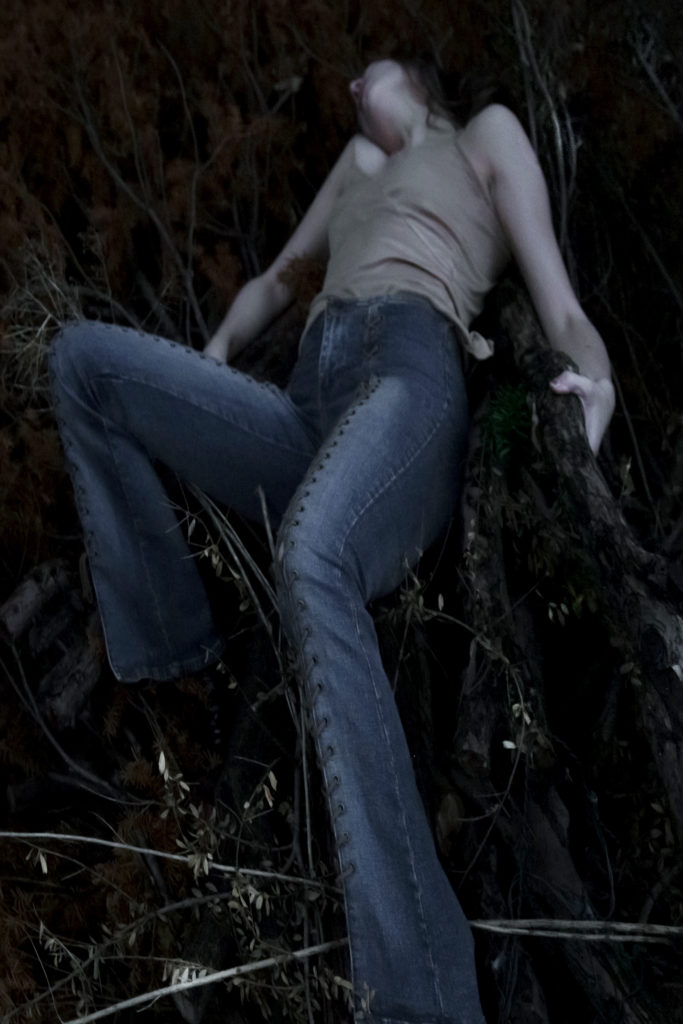
**What were the driving ideas behind Adoration?
MG: There was a certain desire for delicateness and intimacy, which I tried to communicate with the album cover. A relational attempt. I think I want to share with the listener what seems to be so hard to share with people in real life. I approach music like an invitation to share emotional and erotic intelligence. Longing for a sincere closeness I am inviting to an intimate dialogue.
I am thinking of Audre Lorde’s understanding of the notion of ‘erotic’ in ‘The Uses of Erotic: Erotic as Power.’ I am not necessarily referring to the sexual aspect of eroticism.
Through the process I also started to understand something about how I was being faithful to the poverty of the context of production. Skeletal, the songs standing there alone naked in an unfurnished semi-basement. During the making, somewhere last summer, I also remember writing about how I felt this album was a vacillating deserted house infiltrated by outdoor elements — ponds of rain waters, grass, hail, wind and sunlight entering through the cracks.
There is maybe a certain idea of invasion, which I experienced in the last two years, invasion of time and invasion of space through difficult working situations and precarious living situations. The project was driven by a need to shut a door and keep it closed, stay in silence, check on myself and try to listen. You can only enter, one who takes his or her shoes off and accepts the rule of whispering. It is also about visiting the wounds and spitting out some venom. I chose ‘adoration’ because I like this word a lot, simply how it looks and sounds, and also its ambivalent meaning is appealing. It could be pure and innocent to simply adore but it is never simple, it could also be fanatic, destructive and blind, alienated by the sick power internalization.**
- Cecilia – Teen Poise (Acapella)
- Olivier Messiaen – Monodie (played by Olivier Latry)
- Hildegard Von Bingen – Canticles Of Ecstasy
- Oxhy – Revenge Body
- Ghédalia Tazartès – Merci Stephane
- House of Kenzo (deconstructed by Ben Aqua) – Bonfires of Urbanity
- Oli XL – Mimetic
- GIL – Many
- Diable Noir – kad , ident: – Zougouna La panthère rose et l’invité Colon88 Mark Ernestus & Obadikah – April parts
- D3AD6OY – Money Crazy
- naked afraid and alone – dungeon
- Björk – Venus as a Boy – (Harpsichord)
- Le Mystere des voix Bulgares – Dilmano Dilbero
- V1984 – Do things my own way darling
- Diamanda Galas – Supplica a mia madre (PPPasolini)
- Si Maritau Rosa (Sicilian Folk)
Cecilia is performing Amsterdam’s Progress Bar at Paradiso Noord, Tolhuistuin, on May 26, 2018.
